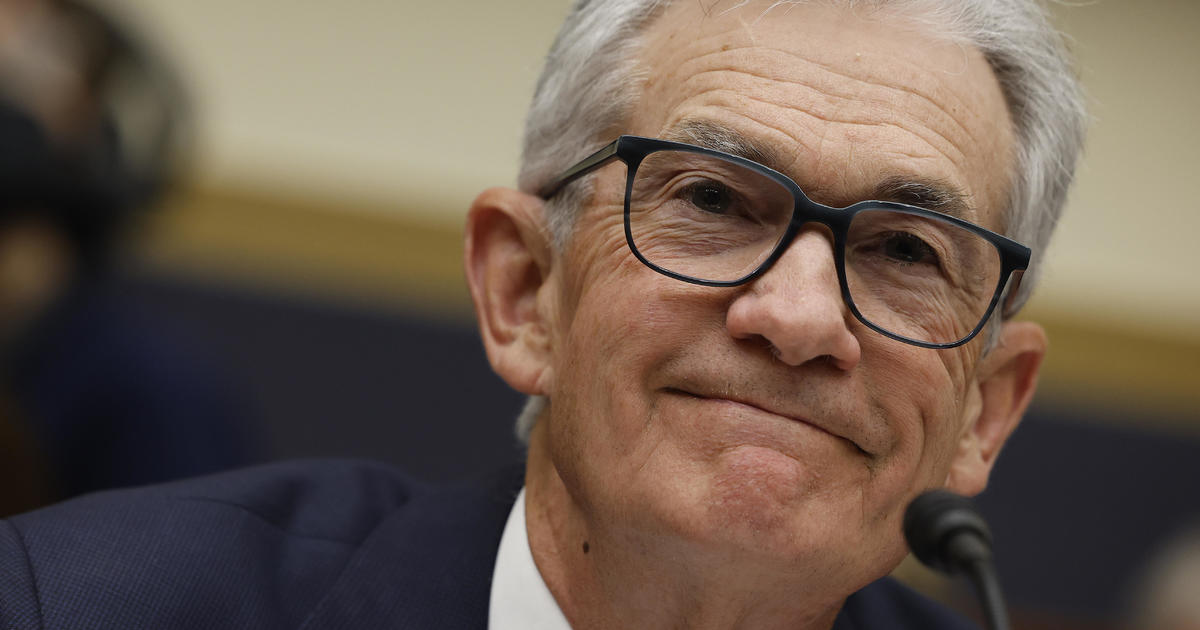Wall Street wonders: Can Trump deliver the goods?
The Trump stock market rally continues to roll on, fueled by excitement over the administration’s bold economic plans. So when Donald Trump addresses a joint session of Congress on Tuesday night, anticipation is high that he’ll provide updates and details on his agenda.
But along with the bull market euphoria, an undercurrent of unease is growing that he may not be able to deliver, at least anytime soon. Or if he does, the moves will prove ineffective. Pushing through ambitious legislation never is easy on Capitol Hill, and numerous Wall Street pros fret that President Trump won’t be able to surmount a host of obstacles.
The prospect of Trumpian economic stimulus has helped buoy the stock market since Election Day. “People want to believe,” said Alfredo Martinez, chief investment officer of HighTower Boca Raton. “Maybe too much is priced in,” meaning investors’ hopes may have exceeded what’s politically possible.
The stimulus plan and regulatory cutback the administration aims for, Douglas Kass of hedge fund Seabreeze Partners told Politico, is “likely to provide a lesser and later contribution to economic and profit growth than the consensus expects. I don’t think it should be friendly to the markets.”
To Larry Fink, head of asset management at Black Rock (BLK), a delay in the Trump plan would harm the stock market. “I see a lot of dark shadows that could impact the direction of the marketplace,” he said at a recent conference.
Of course, when Mr. Trump addresses Congress Tuesday night, any optimism about economic stimulus might trigger an upward move in stocks on Wednesday. The question is whether the market will have staying power if his proposals bog down.
Dealing with the intricacy of the changes that Mr. Trump wants -- involving taxes, public works spending, health care and the federal budget -- is challenge enough. To make the problem even more formidable, add in a stalwart cadre of budget hawks, meaning congressional Republicans who are alarmed at the growing federal budget deficit, and a politically powerful force of special-interest lobbyists.
On Monday, the White house released a budget outline that intends to cut domestic spending to make way for higher military outlays -- and presumably give the president some leeway with the budget hawks to get his stimulus program through.
Here are the possible pitfalls that could waylay Mr. Trump’s ambitions:
Tax overhaul. This is the linchpin of the entire program. Reducing federal taxes and eliminating loopholes has widespread support in Congress, particularly among the president’s fellow Republicans. The trouble is that enormous legions of lobbyists are mobilizing to save their favorite provisions, ranging from homebuilders to importers to private equity firms. These groups also are generous campaign contributors, so lawmakers pay attention to their views.
A key player in this drama is House Speaker Paul Ryan, who could be Mr. Trump’s best ally on economic stimulus or end up as a brake on his efforts. The Wisconsin Republican has his own tax plan, and the White House is putting the finishing touches on its version.
Ryan’s plan is controversial stuff that already has aroused staunch opposition to some of its provisions. He envisions doubling the standard tax deduction, for instance. This would shrink the benefit to homeowners who itemize their tax returns and deduct mortgage interest from incomes.
Similarly, Ryan wants to enact a “border adjustment tax,” which would slap a 20 percent levy on imports, with exports owing nothing. And there’s the call to squelch the lower rate on “carried interest,” the fees that private equity managers charge clients.
The Ryan plan, a lot of which Mr. Trump has embraced earlier, is far from a slam dunk, especially in the Senate. Sen. Lindsey Graham, R-South Carolina, has said only 10 Republican senators are in favor of the border tax.
Infrastructure spending. Mr. Trump seeks a $1 trillion program to rebuild the nation’s aged and deteriorated roads, bridges, harbors, tunnels and other parts of the physical framework so vital to the economy’s functioning. The idea is a winner with the public: A Gallup poll last year found that 75 percent of Americans agree that more federal money should go to infrastructure overhaul.
While the administration hasn’t yet fleshed out all the details of its plan, its first task is to reassure the budget hawks that the public works spending won’t deepen government red ink -- the national debt is expected to top $20 trillion very soon. Senate Majority Leader Mitch McConnell, R-Kentucky, has said that he wanted to avoid “a $1 trillion stimulus.”
To the budget hawks, infrastructure spending too often means money-wasting boondoggles, and they blocked Barack Obama’s efforts to pump up public works outlays.
For instance, New York City’s long-delayed Second Avenue subway, which finally opened New Year’s Eve after almost 10 years of construction, costed $1.7 billion per kilometer of track, the most expensive in history for a rail project.
During last year’s election campaign, Mr. Trump talked about partnering with private developers, using tax credits as an incentive, to build a chunk of the projects. He has spoken of tapping fresh tax revenue from faster energy production -- which he expects from removing regulatory hurdles -- and from bringing back corporate cash stashed overseas.
Such an approach has drawn fire from Democrats, who contend that private developers would only want to invest in things that bring them a return, such as a toll road. They wouldn’t be interested in mass transit and water systems, Democrats charge. “A program of tax cuts isn’t going to get the job done, no matter how large,” Senate Minority Leader Chuck Schumer, D-New York, said.
Health care revamp. The White House and congressional Republicans have indicated a desire to deal first with repealing and replacing Obamacare. Since its enactment in 2010, the health law has been No. 1 on the GOP hit list, with numerous votes to undo it passing in a Republican-controlled Congress, only to be vetoed by President Obama. But now, Republicans are in charge on both ends of Pennsylvania Avenue, so they own the issue.
Most of them want to keep popular facets of the Affordable Care Act, such as its ban on insurers refusing to cover people with preexisting medical conditions. And they want to end unpopular features, such as mandates that individuals obtain health insurance and that large employers offer it, with penalties for noncompliance.
The risk, though, is that Republicans will end up slashing or outright removing coverage for some 20 million Obamacare beneficiaries -- a large number of them working-class Americans who voted for Mr. Trump. At town hall meetings in their districts, Republican lawmakers recently have run into raucous opposition to dismantling Obamacare.
Speaking at the Conservative Political Action Conference last week, the president said the law covered too few people and removed coverage for those who had plans that didn’t meet ACA crieria. “The bottom line -- we’re changing it,” Mr. Trump said. “We’re going to make it much better. We’re going to make it less expensive. We’re going make it much better.” He also said on Monday that he’ll be offering more specifics in his address to Congress Tuesday evening.
Budget deficit. The Committee for a Responsible Federal Budget, a bipartisan organization that opposes government fiscal excess, has warned that Mr. Trump’s ambitious plans will radically enlarge the federal budget deficit. At this point, the debt held by the public is 77 percent of U.S. GDP, twice as large as the historical average. To budget hawks, this situation is a clear and present danger.
Under current law, that debt-GDP ratio will reach 89 percent in 10 years, the group said -- and if Mr. Trump gets all he wants in terms of stimulus, it could go much higher. “Policymakers need to reduce the debt, not add to it,” the CRFB said in a statement.
To Mr. Trump, however, his stimulus will yield a higher economic growth rate, which in turn will generate more tax revenue and thus won’t produce a bloated national debt. Democrats respond that previous such exercises -- namely Republican tax cuts under Ronald Reagan and George W. Bush -- didn’t deliver the promised bonanza and did lead to more debt.
At the same time, Mr. Trump has vowed to keep his hands off two major entitlements for older citizens: Social Security and Medicare, which together with Medicaid (government-subsidized health care for the poor) ate up almost half of federal spending in 2016, according to the Congressional Budget Office.
Nevertheless, the president remains undaunted about the prospects for the U.S. under his plans. “Great optimism for future of U.S. business, AND JOBS,” he tweeted recently, noting that the market continued to climb. “Big tax & regulation cuts coming!”



